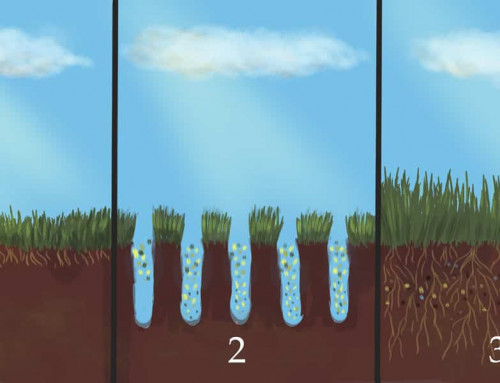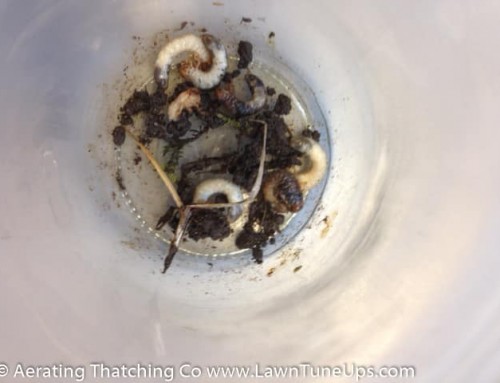If you plan on living in your house for over 3 years it is a good idea to consider soil testing. It is very inexpensive and the benefits outweigh the cost. A soil test will tell you exactly what your soil quality is and what can be done to improve it. If you do not know what is in your soil, the health of your lawn is at risk.
What is a Soil Test?
A soil test, much like a blood test for humans, helps determine the health of the soil. A simple laboratory test shows the nutrients in the soil as well as its pH, which determines whether those nutrients are available to feed the plant.
The results will be more than just the pH level. A soil test can help you reduce pest problems, weeds and drainage issues. A soil test is about physics and biology, not just acid/alkaline levels. When you achieve soil biology balance the appearance of your lawn and landscape will be greatly improved. You will be spending noticeably less money on fertilizers, weed control and maintenance because the well balanced soil will be stronger and healthier.
There are 2 to 3 million species of microorganisms in a healthy soil profile. To have plenty of microorganisms, a high quantity of food (carbon) needs to be present to feed them. Synthetic nitrogen from non-organic fertilizer removes carbon from the soil (not good). This is why I now carry both organic and 60% slow release standard fertilizers. In order to support healthy microorganism numbers, a good soil test will tell you what needs to be done on your property to get and keep a healthy soil profile.
Why Should I Get a Soil Test?
This is a road map for the future of your soil. The test will show what your current soil conditions are and tell you what changes to make to achieve the best results. If you are planning anything long-term for your lawn, home, and family, you will be well invested to fully understand what you are surrounded by. The results of a soil test will tell you how you can reduce the cost of watering, fertilizer, and pesticides along with showing insights on how to avoid the expensive runoff. This is important as many people think that simply adding fertilizer, fertilizer, and more fertilizer, will be all they need. Too much fertilizer can, in some soil, add too much Nitrogen, and actually weaken the lawn, leading to more disease and insect problems.
King County Conservation District has a free soil testing program for anyone living within King County, Washington. This program covers everything from pastures, to yards, to vegetable gardens. Each landowner is eligible for five free samples. Check out their site at: http://kingcd.org/programs/better-soils/healthy-soil/
Before paying for an extensive soil renovation, it makes sense to consult with a soil and plant lab. Their soil test will tell you about:
- organic material in your lawn
- cation exchange capability ( CEC )
- soil fertility
- pH levels
- a complete scientific readout
How Often Should You Test?
Every year if you have problems to correct and/or you are tracking progress. Testing under normal circumstances should be done about every three years. Testing should ideally be performed at the same time of year to get accurate and controlled results.
Your first time viewing your soil analysis can be daunting. Although it is very technical, there is an incredibly informative sample report you should review first. The sample report is an interactive example where you can learn about what the details of your soil test mean so you can better understand what is really going on with your soil: https://kingcd.org/2020/02/03/understanding-your-kcd-soil-nutrient-test-results/





